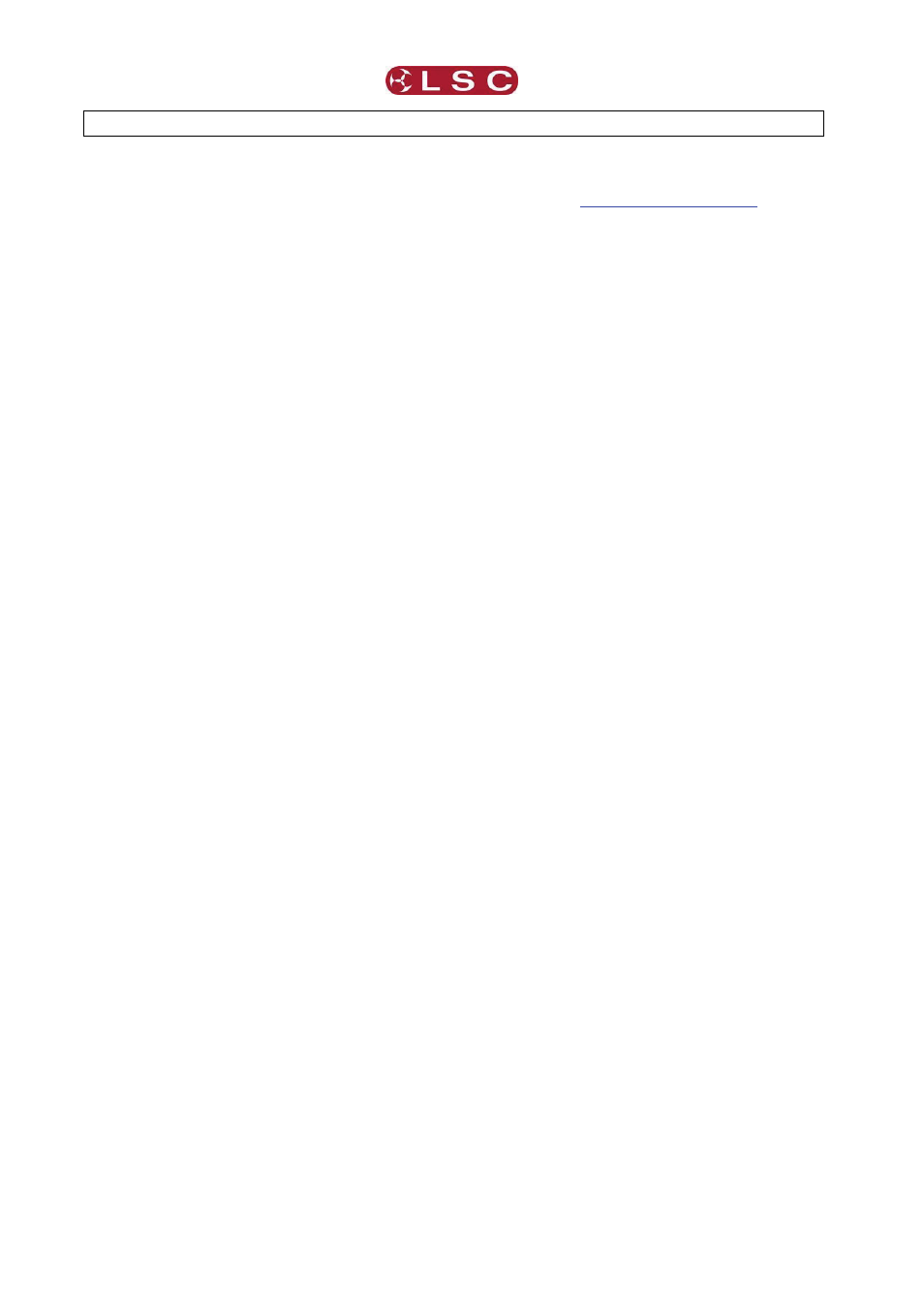3 getting connected, 1 input supply, 2 dmx control input – LSC Lighting TEKO User Manual
Page 8: 3 lscnet input, 4 load connection, 5 overload protection, 6 dimmer installation, Getting connected

TEKO Dimmer
Operator Manual V3.0
3 Getting Connected
3.1 INPUT SUPPLY
TEKO dimmers are designed to be connected to
a 3 phase supply and are supplied with either a
1.2m/5 wire/6mm² or 1.2m/5 wire/10mm² black
rubber insulated power cable terminated inside
the dimmer.
Most Australian models are fitted with a 5 pin
three phase plug. The TEKO power plug is
rated at 40 Amps per phase.
Export models have the end of the cable
unterminated, numbered and fitted with ferrules,
ready for termination into a suitable three phase
plug. Permanent installation models have a
special screw termination rear panel that
provides five 16mm² pressure pad screw
terminals to connect incoming three phase
supply.
Connection is Three Phase Star; however other
versions such as single phase(s), two phase and
Three Phase Delta wiring are available upon
request from the factory. Contact LSC Lighting
Systems or your nearest Distributor for further
information.
LSC recommends an overrated Neutral (1.5
times phase current) on the incoming supply for
optimal performance and minimal interruption.
The incoming supply should also be fused or
fitted with a suitably rated circuit breaker.
3.2 DMX CONTROL INPUT
TEKO dimmers are designed primarily to accept
control signals conforming to the DMX512A
protocol. The DMX input connector is located on
the front control panel. A Thru connector located
next to the Input allows the connection of the
dimmer to other DMX512 devices downstream.
The Thru connection is passive and allows for
the pass through of the DMX512 signal, even if
there is no power to the dimmer. The last
dimmer on the DMX cable must have the DMX
termination on.
3.3 LSCNET INPUT
TEKO dimmers have an LSCnet interface that is
used to connect optional remote ePlate wall
panels and monitor the dimmer status using
Houston monitoring software. The LSCnet
interface has an input and thru connector similar
to the DMX connections. The last dimmer on
the LSCnet cable must have the LSCnet
termination on.
3.4 LOAD CONNECTION
The TEKO dimmers are available with a wide
selection of output load connectors to suit the
many applications and countries of installation.
Wiring details for the Multipole connector options
are detailed in
.
For Australian versions, the 12 channel TEKO is
supplied with twelve Australian Sockets and the
6 channel is supplied with 6 sets of 25 Amp and
15 Amp Australian Sockets connected in
parallel.
European versions of TEKO are available with
the following socket types: Shuko, 16 pole
Harting, 19 pole Socapex, 63A CEEform (3
channel model) and a screw terminal version for
permanent installations.
Care should be taken when driving inductive
loads as not all of these types of loads can be
dimmed. If you are in doubt to the dimmers
suitability for the intended application, please
consult LSC Lighting Systems or your nearest
Distributor for further information.
Under all circumstances during the operation of
the dimmer, it is highly advisable not to connect
or disconnect the load while live, to prevent
potential damage to the dimmer, the load
connectors or to the load itself.
3.5 OVERLOAD PROTECTION
Each dimmer is fitted with fast acting thermal
magnetic Miniature Circuit Breakers (MCB’s),
one for every output channel. Some TEKO
models are optionally available with RCBO
protection. Under normal operating conditions
the MCB’s pass the rated current and will only
trip when there is an overload through the
dimmer circuit. Likewise, if there is a short circuit
on the load or faulty wiring on the load side, the
MCB will trip to protect the internal components
of the dimmer.
Dimmer channels can be manually disabled by
switching off the MCB for that particular channel.
This is particularly useful for those occasions
where a genuine fault has occurred.
3.6 DIMMER INSTALLATION
The TEKO dimmers have been designed to be
either free standing or 19” Rack mountable.
In free standing applications, all dimmers have
four rubber feet attached to the bottom of the
chassis.
If the dimmer is used for touring applications in a
Roobar frame, LSC can provide optional Roobar
mounting brackets to secure the back of the
dimmer.
LSC Lighting Systems (Aust) Pty. Ltd
Page
6